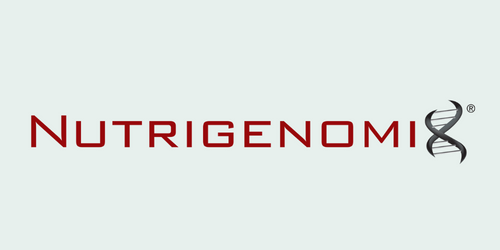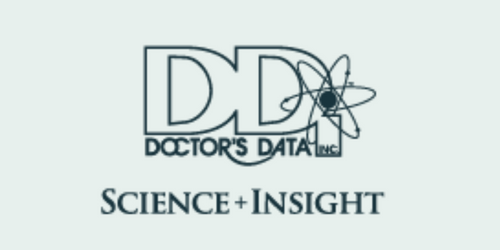DNA Testing
DNA testing allows us to take a deeper look into how genetic factors may be affecting your health. It can enable us to take a personalised approach to illness prevention as well as to be targeted in our approach to current ill health concerns.
We use a wide range of the highest-quality testing available today to ensure the best and most reliable results for our clients.
The DNA tests we provide, with comprehensive report packages, include the following:
-
This test analyses how gene variants can affect food tolerance (and intolerance), appetite control and blood sugar balance, vitamin and mineral needs, detoxification ability, and susceptibility to inflammation and infection.
Nutrient Core will help you understand the fundamental genetic interactions with diet and lifestyle and indicate whether specific functions require further genetic testing. It includes genes that have been shown to affect:
food response - coeliac disease (gluten) and lactose intolerance
caffeine - sensitivity and metabolism
microbiome - diversity
vitamin need - vitamins A, B9 (folate), B12 (cobalamin), C, D and K
blood pressure - sodium-potassium balance & salt sensitive hypertension
detoxification - glutathione
metabolism - blood sugar control (insulin), appetite (leptin)
inflammation - specific (infection response) and systemic
circadian rhythm - early bird or night owl predisposition
-
The Metabolics Report transforms our understanding of how genes confer metabolic individuality and underpin energy regulation, longevity and healthspan.
Metabolism refers to all cellular chemical reactions and is essential for life. It involves many interconnected pathways that can be divided into ‘anabolism’ (‘build up’ e.g synthesis of sugars, fats, proteins and nucleic acids) and catabolism (‘break down’ e.g., releasing energy in the form of ATP). These complex processes, and the balance between them, are the key to energy metabolism and healthy cell structure and function.
The comprehensive Metabolics report presents the genes that can powerfully influence key pathways driving human metabolism. It incorporates over 40 genes and 50 SNPs across 6 pathways, including appetite regulation, nutrient sensing, sugar and fat metabolism, cholesterol and bile, mitochondria and inflammation.
-
Steroid hormones are a group of hormones derived from cholesterol including progesterone, oestrogen, testosterone, DHEA, and cortisol (and their derivatives). They are involved in the regulation of many physiological processes in both men and women, such as the development and function of the reproductive system, metabolism, inflammation and immune system. Steroid hormones are generally carried in the blood, bound to specific carrier proteins. Further metabolism and catabolism occurs in the liver, in other peripheral tissues, and in target tissues.
Symptoms of steroid hormone imbalance can affect men and women, and include: infertility, low libido and sex drive, low sperm count, acne, excess facial hair in women, PCOS, blood clots, mood swings, depression, substance misuse, poor memory, weight gain (belly fat for men), breast appearances in men, and hormone sensitive cancers, such as breast cancer or prostate cancer.
The Hormones test analyses genes involved in the regulation, synthesis, signaling, transport and metabolism of corticosteroids and sex steroids hormones. It looks at how gene variants affect hormone imbalance and details the nutrients and environmental factors that can influence and improve their balance. The Hormones report is recommended for men and women with hormone imbalance symptoms such as the ones listed above.
-
Methylation is the process of adding methyl groups, consisting of one carbon and three hydrogen atoms, to other molecules. It is involved in almost every metabolic process in the body, occurring billions of times every second in our cells and contributing to numerous crucial functions.
Imbalances in methylation - too little or too much - can increase susceptibility to chronic health conditions such as heart disease, circulatory problems, chronic fatigue, infertility, immune and autoimmune conditions, food and chemical sensitivities, and mood and psychiatric disorders, as well as cancer and premature ageing.
The Methylation test examines genes involved in five sub-cycles - folate, methionine, neurotransmitter, transsulphuration and urea. Genetic results will inform whether someone is likely to be poor or overly efficient at processing cofactors - B6, B9 (folate) and B12 (cobalamin), methionine, betaine, choline, zinc and magnesium; and inhibitors - chemicals, moulds, drugs, hormones and heavy metals and provide guidance on how to support or bypass bottlenecks or weaknesses.
-
Histamine has many functions: as a neurotransmitter, communicating messages to and from the brain and nervous system; triggering the release of stomach acid to help digestion; and it can also be released after stress, injury or allergic reaction as part of the body’s immune response.
Histamine intolerance is the body’s reaction to an imbalance between accumulated histamine and the capacity to break it down. When the body is unable to break histamine down quickly enough it becomes toxic. Symptoms of histamine toxicity may include skin irritation or breathing difficulties (mimicking an allergic reaction), digestive problems, headaches, insomnia and anxiety.
The Histamine Intolerance test analyses the genes and nutrients needed to breakdown and remove histamine, showing where disruptions occur and how to support optimal function. Diamine oxidase (DAO), which primarily breaks down histamine in the gut, can be impaired by gastrointestinal disease or ‘blockers’ such as alcohol, smoked or fermented foods, black tea, green tea and some medications such as non steroidal anti-inflammatory medications (ibuprofen or aspirin). Insufficient histamine-n-methyl- transferase (HNMT) in the nervous system and lungs can also lead to histamine overload.
-
Oestrogen is one of the two major female steroidal sex hormones, the other being progesterone. Men also require oestrogen for producing sperm and maintaining libido, but at significantly lower levels. Oestrogen's main role is to increase the growth and production of cells. It is responsible for the development of the female reproductive system and is also involved in maintaining bone density, blood clotting and affects hair, skin, mucous membranes and pelvic muscles.
Oestrogen imbalance can contribute to female gynaecological issues including fibroids, PMS, and heavy menstrual bleeding, skin-related issues including acne and rashes, and ER positive breast cancer.
The Oestrogen Balance test analyses genes involved in the oestrogen lifecycle. It looks at how gene variants affects production, activation and elimination of oestrogens as well as detailing the nutrients and environmental factors that can influence and improve their balance. The Oestrogen Balance report is recommended for women who suspect oestrogen-linked conditions.
-
Detoxification is the physiological removal of toxic substances from the human body. It is mainly carried out by the liver, and to a lesser extent the small intestine, kidneys and lungs. Substances such as nutrients, food additives, pesticides, medications, air pollutants, alcohol and hormones are transformed from being fat-soluble to water-soluble, allowing them to be more easily excreted from the body. The process occurs in two major phases: Phase I primes toxic molecules for deactivation and Phase II finishes the deactivation and prepares for elimination.
Poor detoxification can cause symptoms such as headaches, muscle aches, fatigue, allergies, skin disorders, weight gain, bloating, acid reflux and heartburn, excessive sweating, chronic infections, subfertility, low libido, poor mental function and low stress tolerance.
The Detoxification test examines genes which impact Phase I reactions in the liver, including the cytochrome P450 oxidases, Phase II conjugation, including the UDP-glucuronosyltransferases (UGTs) and glutathione S-transferases (GSTs) and the Phase III antiporter gene ABCB1, which affects the transport of medicines and other substances into and out of cells. It also include genes that help to neutralise ROS - due to toxic intermediates (generated in Phase 1). The report identifies personalised nutritional support required to optimise detoxification.
-
The nervous system supports the transmission of messages around the mind and body, enabling an individual to respond to their environment. A neurotransmitter is a molecule that carries signals between neurons and across nerve junctions (synapses). Excitatory neurotransmitters increase the likelihood a neuron will fire a signal, while inhibitory neurotransmitters have the opposite effect. In order for us to interact effectively with our environment these must remain in balance.
Symptoms of neurotransmitter imbalance can include: mood imbalances, depression, mania, attention deficit and obsessive compulsive disorders, addictive behaviours, motor control disruption, anger, aggression and restlessness.
It analyses gene variants that impact serotonin (contentment) and melatonin (sleep), dopamine (motivation), noradrenaline and adrenaline (fight or flight); glutamate (the major excitatory neurotransmitter); GABA (the major inhibitory neurotransmitter) which is critical for relaxation; and endoCannabinoids (AEA/ anandamide) which regulate other neurotransmitters. The report provides detailed recommendations for nutritional support to alleviate symptoms and to optimise mental health.
-
The Apolipoprotein E (APOE) gene is best known for its role in lipid (fat) metabolism by helping to remove cholesterol from the bloodstream. It can exist in three main forms known as E2, E3 and E4.
The E4 form of the APOE gene has been associated with increased plasma cholesterol and triglycerides and susceptibility to cardiovascular disease - heart attacks or strokes due to atherosclerosis, insulin resistance and Alzheimer’s disease. However, having an E4 genotype is one of many risk factors and does not mean you will develop any of these conditions.
In addition to APOE, this test examines genes involved in methylation, inflammation, toxicity and neuroprotection, to enable individuals to take preventative action by adopting personalised nutrition and lifestyle changes to optimise their future, long term health.
-
The thyroid is an endocrine gland in the neck that produces two thyroid hormones - triiodothyronine (T3) and thyroxine (T4), and calcitonin. Thyroid hormones control the metabolism of almost every cell in the body, with wide-ranging metabolic, developmental and cardiovascular effects. Thyroid activity is altered by genetics and environmental factors: nutrients (tyrosine, selenium and iodine), toxins (fluoride, chlorine or moulds), psychosocial or physical stressors, bacteria and viruses. Imbalance can result in HPT axis (Hypothalamus-Pituitary-Thyroid) dysfunction, autoimmune thyroid diseases (AITDs) such as Graves’ and Hashimoto’s, thyroid sensitive cancers (although rare), and impact transport, activation and response to thyroid hormones. Deficiency or excess of thyroid hormones can result in many different symptoms. Hypothyroidism (under activity) can cause weight gain, fatigue, low libido, cold intolerance, dry skin, constipation and depression. Symptoms of hyperthyroidism (over activity) include anxiety, heat intolerance, heart palpitations, insomnia and weight loss. The Thyroid Balance report analyses the genes involved in the thyroid hormone lifecycle: synthesis - centrally (in the thyroid) and in activation in peripheral tissues, transport and metabolism, processing of cofactors (vitamins D and A) and inhibitors (stress and toxins). It also examines genes that confer susceptibility to inflammation and autoimmunity.
-
DNA sequencing has opened the door to personalised approaches to health and fitness, enabling a more intelligent approach to training, recovery and performance.
In this report, we present elements of your unique DNA profile that have been shown to affect athletic performance.
The personalised genetic results are grouped into three topic areas:
Train - tailor a programme that will be most effective for you to support cardio-vascular adaption, strategic fuelling and structural strength
Recover - build resilience and reduce your risk of injury and illness by controlling inflammation, reducing oxidative stress and optimising sleep
Perform - balance stress and stimulation when it matters most - to achieve your personal best
Purchase DNA Tests Online
If you have any current health concerns then we would recommend our comprehensive package with full Functional Medicine Health Assessments, as they will give you the greatest insight into how the test results may be playing a role in any current health concerns that you may have, and we will provide test result interpretation in relation to these health concerns.
This package includes 1 DNA test, a written report interpretation and a 30 minute call to discuss the report.
Basic Package
For individuals seeking a deeper understanding of key factors that contribute to optimal health, we provide a basic testing and interpretation package. This option is recommended primarily for those without any pre-existing health issues.
This package includes 2 DNA tests, a written report interpretation and a 45 minute call to discuss the report.
This package includes 1 DNA test, a comprehensive initial functional medicine health assessment, a written report interpretation and a 30 minute call to discuss the report.
This package includes 2 DNA tests, a comprehensive initial functional medicine health assessment, a written report interpretation and a 45 minute consultation to discuss the report.
Comprehensive Package
To address the needs of individuals with existing health concerns, we offer comprehensive testing and interpretation support packages. These packages allow us ample time to identify underlying imbalances in health and interpret your test results in relation to your health concerns.
Do you have any queries about the DNA tests?
If you are unsure about which test is right for you, or if you want to book more than two tests, contact us here.













